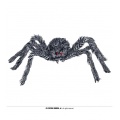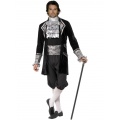
Baroque Vampire Lord Costume
In stock
2 699,00 Kč
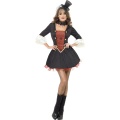
Vampire Princess Costume
In stock
1 499,00 Kč
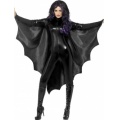
Vampire Bat Wings
In stock
579,00 Kč

Halloween Pirate Costume
In stock
3 179,00 Kč

Men's Wig - Afro, Green
In stock
299,00 Kč

Women's Wig - Straight with Bangs, Purple
In stock
469,00 Kč

Women's Wig - Bob Cut, Black
In stock
469,00 Kč

Fishnet Tights - Black
In stock
189,00 Kč

Tights - Opaque, Black
In stock
159,00 Kč

Mask - Skull
In stock
149,00 Kč

Sexy Half Mask - Rabbit
In stock
169,00 Kč

Mask - Scream
In stock
209,00 Kč
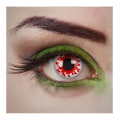
Contact Lenses - Bloody
In stock
499,00 Kč

Contact Lenses - Zombie
In stock
499,00 Kč
COSTUMES AND MASKS
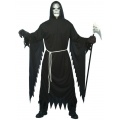
The wearing of costumes has become an important part of such holidays and festivals as Mardi Gras and Halloween (see Halloween costume for more information), and (to a lesser extent) people may also wear costumes in conjunction with other holidays, such as Christmas and Easter. Mardi Gras costumes usually take the form of jesters and other fantasy characters, while Halloween costumes traditionally take the form of supernatural creatures such as ghosts, vampires, pop culture icons and angels. Christmas and Easter costumes typically portray mythical characters such as Santa Claus (by donning a santa suit and beard) or the Easter Bunny by putting on an animal costume. Costumes may serve to portray various other characters during secular holidays, such as an Uncle Sam costume worn on the Independence day for example.
CARNIVAL

Carnival is a festive season which occurs immediately before Lent; the main events are usually during February. Carnival typically involves a public celebration or parade combining some elements of a circus, mask and public street party. People often dress up or masquerade during the celebrations, which mark an overturning of daily life
Carnival is a festival traditionally held in Roman Catholic and, to a lesser extent, Eastern Orthodox societies. Protestant areas usually do not have carnival celebrations or have modified traditions, such as the Danish Carnival or other Shrove Tuesday events. The Brazilian Carnaval is one of the best-known celebrations today, but many cities and regions worldwide celebrate with large, popular, and days-long events.
CARNIVAL IN PRAGUE

Bohemian Carnevale is the Prague version of Mardi Gras. Locally, this pre-Lenten celebration is called Masopust. Bohemian Carnevale is the official Prague city program of festivities.
History of Carnival in the Czech Republic
Carnival in its Venetian-inspired form was celebrated in Prague during the Middle Ages and the Renaissance. The elite members of society sought to mimic or outdo their European counterparts when it came to carnival festivities. Folk Masopust festivities, enjoyed by everybody else, have been undertaken every year for centuries as a way of saying farewell to winter.

